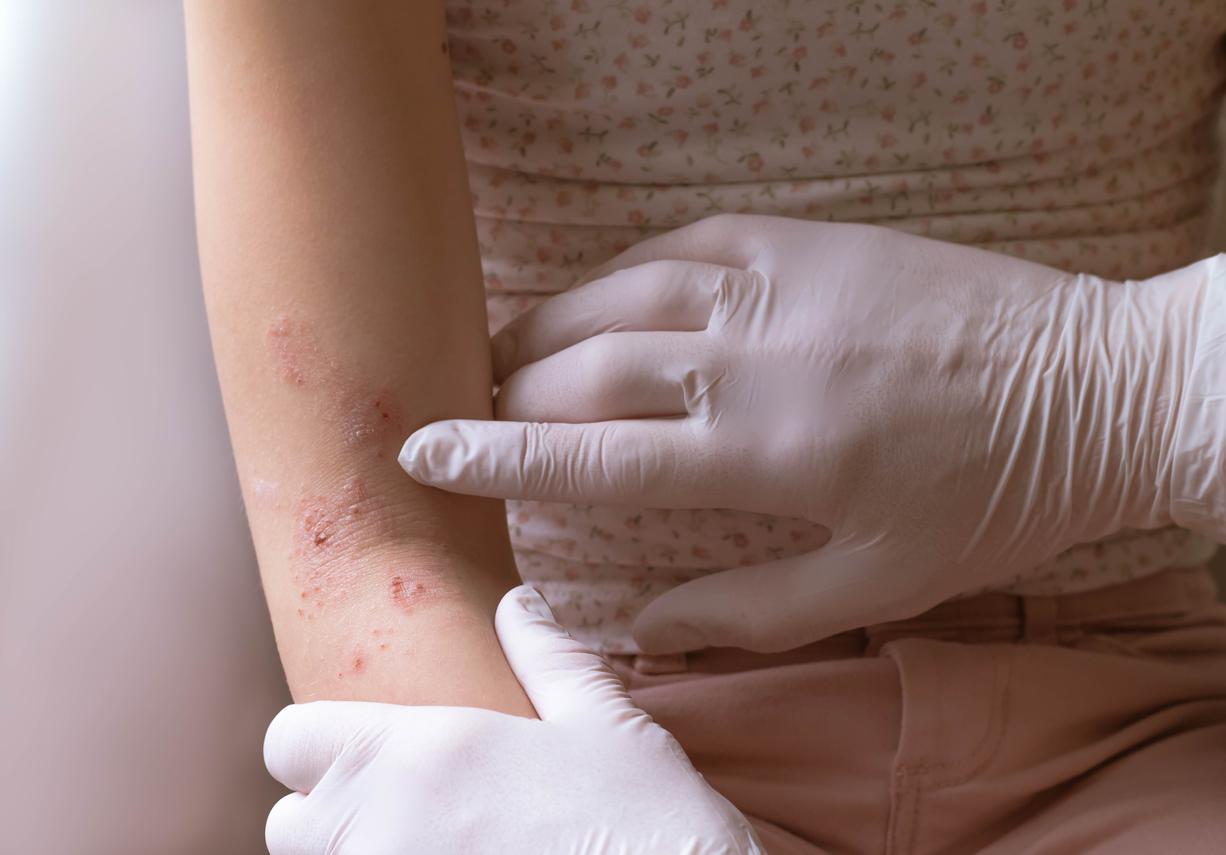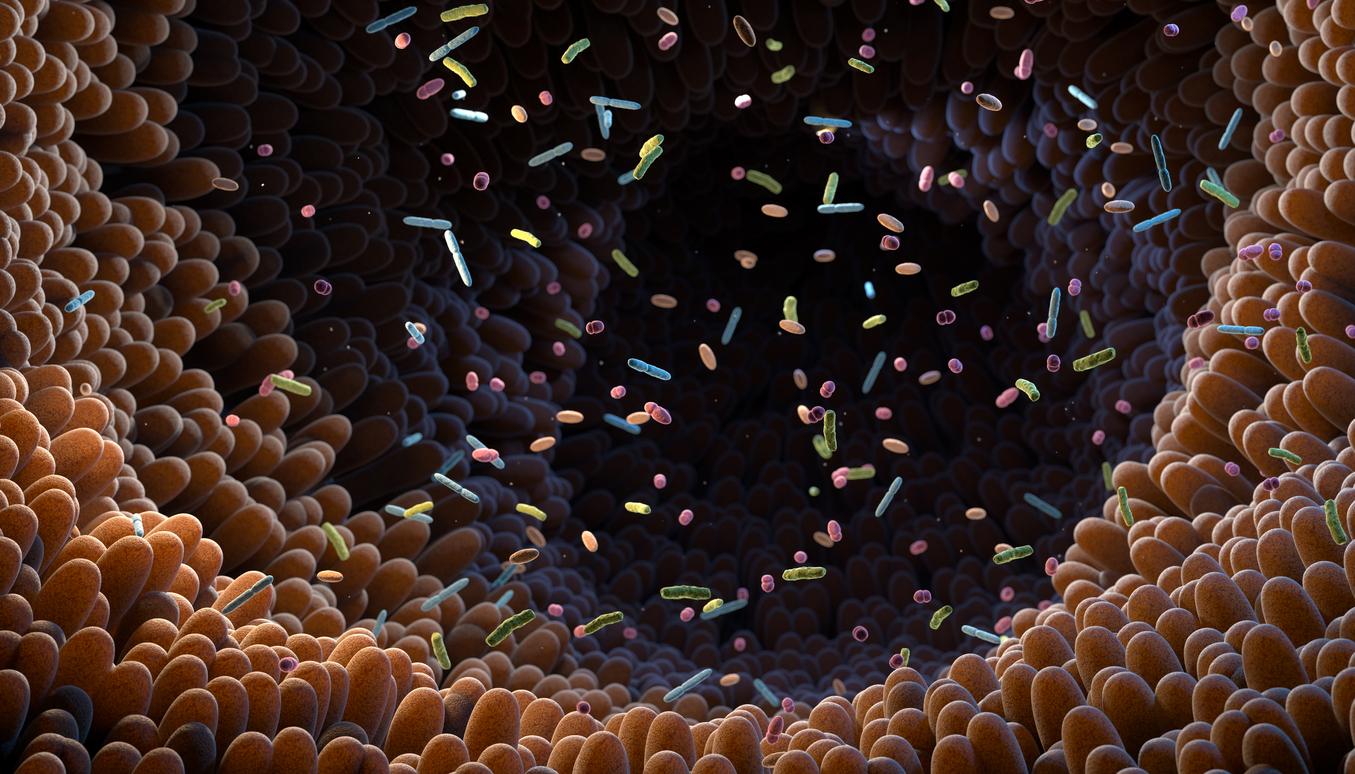Many allergies in children, such as eczema, may be the result of unwanted changes in intestinal bacterial contents.

- In babies, the composition and diversity of the gut microbiota changes dramatically during the first three years of life.
- An imbalance in the gut microbiota may be associated with the development of eczema, asthma, food allergies and hay fever.
- Changes in intestinal bacterial content are thought to be caused by the mode of delivery, the mother’s diet and the use of antibiotics.
Asthma, sometimes colds, food allergies, eczema… These allergic diseases affect millions of people around the world. Every year, more and more children suffer from it, which affects their quality of life and that of their families. “An increase in their prevalence has been associated with alterations in the intestinal microbiota, that is to say the microorganisms and their genes present in the gastrointestinal tract,” said researchers from the University of British Columbia and BC Children’s Hospital (Canada).
Eczema: a change in intestinal bacterial content associated with its development
To find out if the appearance of pediatric allergies was linked to the composition of the infant’s intestinal microbiota, two studies were carried out. The first was carried out by scientists from the Chinese University of Hong Kong. In the work, the team examined the development of the gut microbiota in 112 infants. To do this, they analyzed their 713 stool samples collected at nine time points between birth and age 3 using 16S rRNA gene sequencing. In addition, before their birth, they had collected information about the mother’s health, lifestyle (diet, medication) and events that occurred during pregnancy and childbirth.
According to the results, published in the journal mSystems, alterations in the composition and diversity of the intestinal microbiota during the first three years of life were observed. Researchers found that these intestinal changes were associated with the development of eczema in babies. “Interestingly, we identified Bacteroides depletion and Clostridium sensu stricto 1 enrichment in the gut microbiome of infants with eczema at one year of age. The same trends were also observed in children born by Caesarean section within the same time frame, suggesting a role for gut microbiota in previously reported associations between Caesarean section and increased risk of eczema. can we read in the research. These changes in intestinal bacterial content are thought to be caused by the mother’s mode of delivery, diet and use of antibiotics.

The bacterial signature, a characteristic of an unbalanced intestinal microbiota
Scientists from the University of British Columbia and BC Children’s Hospital also carried out a similar study. They followed 1,115 children from birth to age five. About half of babies showed no signs of allergy at any time, while more than half were diagnosed with one or more allergic disorders by a doctor. The team assessed the children’s gut microbiota using stool samples collected during clinical visits at three months and one year of age.
The results showed that a bacterial signature, a hallmark of an unbalanced gut microbiota, was associated with the development of one of four allergies (eczema, asthma, food allergies and hay fever) age of five. The bacterial signature likely led to damage to the intestinal mucosa and an elevated inflammatory response in the intestine. “From these data we can see that factors, such as the use of antibiotics during the first year of life, are more likely to lead to the occurrence of allergic disorders, while breastfeeding during the first year of life first six months is protective”, concluded Stuart Turveyauthor of the study published in the journal NatureCommunications.
Researchers now hope to exploit these results to develop treatments that “correct” an unbalanced intestinal microbiota and could potentially prevent the development of allergies.

















